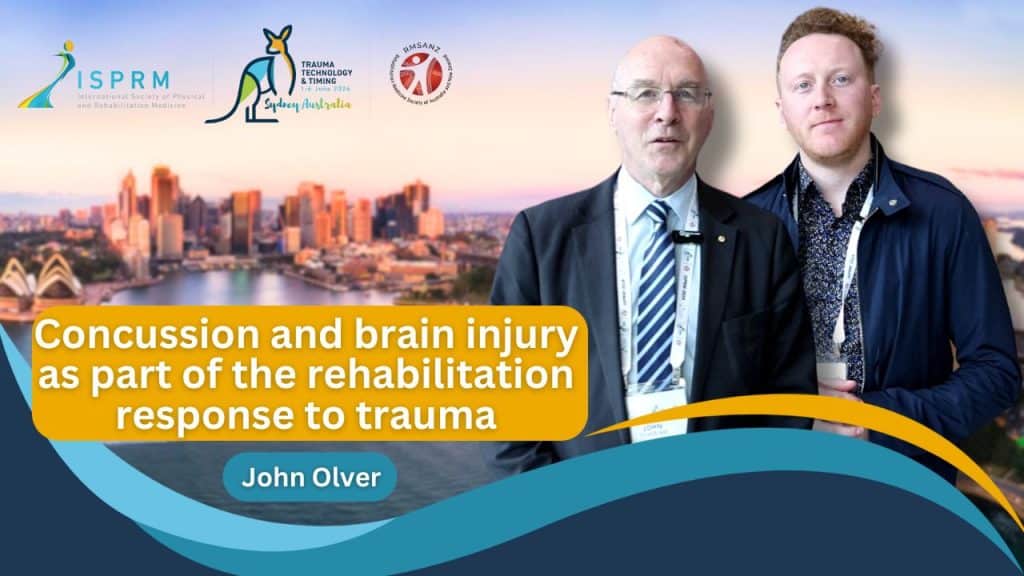Concussion and brain injury as part of the rehabilitation response to trauma

At the #ISPRM2024 congress in Sydney, Professor John Olver delivered a compelling talk on the challenges and advancements in the rehabilitation of concussion and brain injury. In an engaging interview with Edward Lewis, Professor Olver shared valuable insights into this evolving field.
Understanding Concussion in Rehabilitation
“Concussion is an area that’s fairly new for rehabilitation,” Professor Olver explained. He highlighted the complexities and uncertainties surrounding the pathophysiology of concussion. “We don’t know a lot about what actually happens in concussion, why some people get better and others don’t, and why they have persisting symptoms,” he noted. This uncertainty presents a significant learning curve for professionals in the field.
The Evolution of Concussion Management
Professor Olver recounted the establishment of his clinic eight years ago and the progress made since then. He emphasized the importance of consensus statements on concussion, which are updated every few years. “Even with these updates, there isn’t always a lot of literature to back up and provide more information on some of the issues,” he said. This gap in knowledge makes managing symptoms and treatment timelines challenging but also exciting as the field evolves.
Setting Up Effective Rehabilitation Services
When asked about setting up a service to handle the influx of patients with concussion symptoms, Professor Olver stressed the importance of having admission criteria. “We know that we’ve got a lot more success with people that we see early within the first three or even six months,” he said. Early intervention is crucial for reducing symptoms and improving function. However, the increasing number of patients has led to longer waiting lists, making it essential to prioritize resources effectively.
Adapting to the Pandemic with Virtual Rehabilitation
The pandemic forced many healthcare providers to adapt quickly. Professor Olver discussed the use of virtual rehabilitation and telehealth during this period. “We found that even with physiotherapy, you could go through exercises with them on the other end,” he shared. While telehealth proved effective for physiotherapy and initial medical reviews, it was less beneficial for psychological support. Nonetheless, some virtual practices continue to be utilized post-pandemic, enhancing accessibility for patients.
Looking Ahead
Professor Olver’s talk and interview at ISPRM 2024 underscored the dynamic nature of concussion rehabilitation. As the field continues to grow, ongoing research and adaptive strategies will be key to improving patient outcomes.

Responses